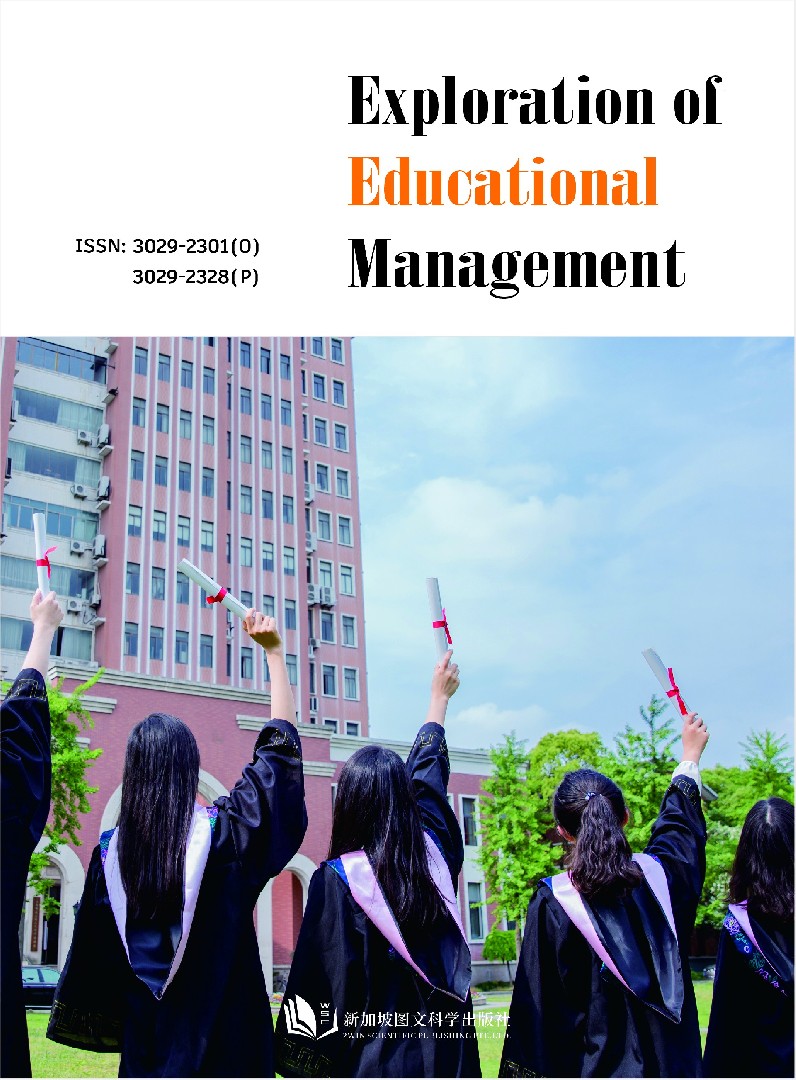作者
Xin Zhang
文章摘要
Abstract: Based on positive psychology, this study explored the effects of resilience on online English learning engagement among college students. Results indicate that resilience has a direct positive effect on engagement, and transactional distance partially mediates this relationship. The findings contribute to understanding factors promoting online learning engagement.
文章关键词
Keywords: resilience; transactional distance; online English learning engagement
参考文献
[1] Dao, P. , M. X. N. C. Nguyen, P. T. Duong &V. Tran-Thanh. 2021. Learner ’ s engagement in L2 computer-mediated interaction: Chat mode, interlocutor familiarity, and text quality. Modern Language Journal 105(4):767-791.
[2] Hui, Lianghong & Wang,Boran. 2022. Influence of digital nativeness on college students ’ online English learning engagement. Foreign Language World (1):83-91.
[3] Li, Chengchen & Han, Ye. 2022. The predictive effects of foreign language enjoyment, anxiety, and boredom on learning outcomes in online English classrooms. Modern Foreign Languages (2): 207-219.
[4] Wang, Yuqi. 2023. The role of L2 grit in willingness to communicate: Mediating effects of foreign language enjoyment and anxiety. Modern Foreign Languages (1): 42-55.
[5] Lopez, S. J. & C. R. Snyder. 2009. Oxford Handbook of Positive Psychology. Oxford: Oxford University Press.
[6] Xu, Jinfen. 2020. New trends in foreign language education: A positive psychology perspective. English Studies (2): 155-164.
[7] Hiver, P. & A. S. Solarte. 2021. Resilience in language learning and use. In T. Gregersen & S.Mercer (eds.). Routledge Handbook of the Psychology of Language Learning. London: Routledge, 205-217.
[8] Yang, S. L. & W. R. Wang. 2022. The role of academic resilience, motivational intensity and their relationship in EFL learners’ academic achievement. Frontiers in Psychology 12: 823537.
[9] Kim, T.-Y. & Y.-K. Kim. 2017. The impact of resilience on L2 learners’ motivated behaviour and proficiency in L2 learning. Educational Studies 43(1): 1-15.
[10] Liu, W., Y. G. Gao, L. Gan & J. W. Wu. 2022. The role of Chinese language learners’ academic resilience and mindfulness in their engagement. Frontiers in Psychology 13: 916306.
[11] Kim, T.-Y. & Y.-K. Kim. 2017. The impact of resilience on L2 learners’ motivated behaviour and proficiency in L2 learning. Educational Studies 43(1): 1-15.
[12] Hiver, P. & A. S. Solarte. 2021. Resilience in language learning and use. In T. Gregersen & S.Mercer (eds.). Routledge Handbook of the Psychology of Language Learning. London: Routledge, 205-217.
[13] Kim, T.-Y. & Y.-K. Kim. 2017. The impact of resilience on L2 learners’ motivated behaviour and proficiency in L2 learning. Educational Studies 43(1): 1-15.
[14] Kim, T., Y. Kim & J. Kim. 2019. Role of resilience in (de)motivation and second language proficiency: Cases of Korean elementary school students. Journal of Psycholinguistic Research 48(2): 371-389.
[15] Moore, M. G. 1993. Theory of transactional distance. In D. Keegan (ed.). Theoretical Principles of Distance Education. New York, NY: Routledge, 22-38.
[16] Kim, T.-Y. & Y.-K. Kim. 2017. The impact of resilience on L2 learners’ motivated behaviour and proficiency in L2 learning. Educational Studies 43(1): 1-15.
[17] Paul, R. C., W. Swart, A. M. Zhang & K. R. MacLeod. 2015. Revisiting Zhang's scale of transactional distance: Refinement and validation using structural equation modeling. Distance Education 36(3): 364-382.
[18] Dixson, M. D. 2015. Measuring student engagement in the online course: The online student engagement scale (OSE). Online Learning 19(4):1-15.
Full Text:
DOI
